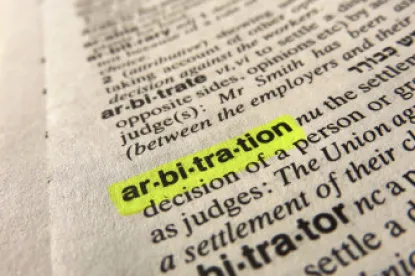Generally, when an arbitration panel issues a final award the panel is “functus officio“; its powers expired and its duties relieved because it has finished its work and there’s no more to be done. Sometimes, however, an arbitration panel will retain jurisdiction for a period of time after the final award is issued in case the parties cannot resolve reconciliation or other issues based on the final award. Retaining jurisdiction holds off the functus officio doctrine for that brief period of time.
There are also judicial exceptions to the functus officio doctrine, which allow an arbitration panel to correct a mistake apparent on the face of the award, or where the award fails to adjudicate an issue submitted to arbitration for resolution, or where the award results in an ambiguity that requires clarification. In a recent case, the latter situation arose and the court had to determine whether it could confirm a clarified award.
In General Re Life Corp. v. Lincoln Nat’l Life Ins. Co., No. 15-cv-1860 (VAB), 2017 U.S. Dist. LEXIS 48860 (D. Ct. Mar. 31, 2017), the court had to answer the challenging question of whether confirmation of an arbitration award, as clarified, is warranted. The case is worth the read because of the detailed analysis of permissible clarification of arbitral awards and the exceptions to the functus officio doctrine. Essentially, the panel issued a majority award and then subsequently clarified an important aspect of the award concerning the relief granted after the parties reached an impasse on how to calculate a recapture. Each party had a different interpretation on what was described by the court as an award that “may have appeared to provide clear guidance on the parties’ obligations.”
After noting the several exceptions to the functus officio doctrine, the court focused on whether an ambiguity arose that required clarification where the award, although seemingly complete, left doubt whether the issue submitted had been fully executed. Importantly, the court stated that an arbitration panel’s clarification or correction must not modify or alter the original award. The court held that for the arbitrators to have had authority to issue a clarification, the provision of the final award must have been found ambiguous and the clarification must merely clarify the ambiguity and not substantively change the award.
In finding that the clarification was warranted and in confirming the final award as clarified, the court noted that no Second Circuit case had yet to analyze whether an arbitration award is ambiguous so that it may be clarified under the exception to the functus officio doctrine. The court held that the ambiguity identified in this case was consistent with case law discussing ambiguity in the context of remanding an award to the arbitration panel. The court found that the parties’ inability to agree as to the meaning of the award supported a finding that the original award was ambiguous. The court held that the award was ambiguous in the context of the treaty because of a potential contradiction between the operative paragraph of the award and a section of the treaty that the court found was relevant to the interpretation of the relief granted in the award.
In so holding, the court noted that it was important to defer to the panel’s conclusion that there was an ambiguity that required clarification. The court also held that the award, as clarified, was consistent with the original award and merely clarified the relief awarded rather than the substance of the underlying dispute and did not impermissibly modify the spirit and basic effect of the award. A motion for reconsideration is pending.




 />i
/>i

